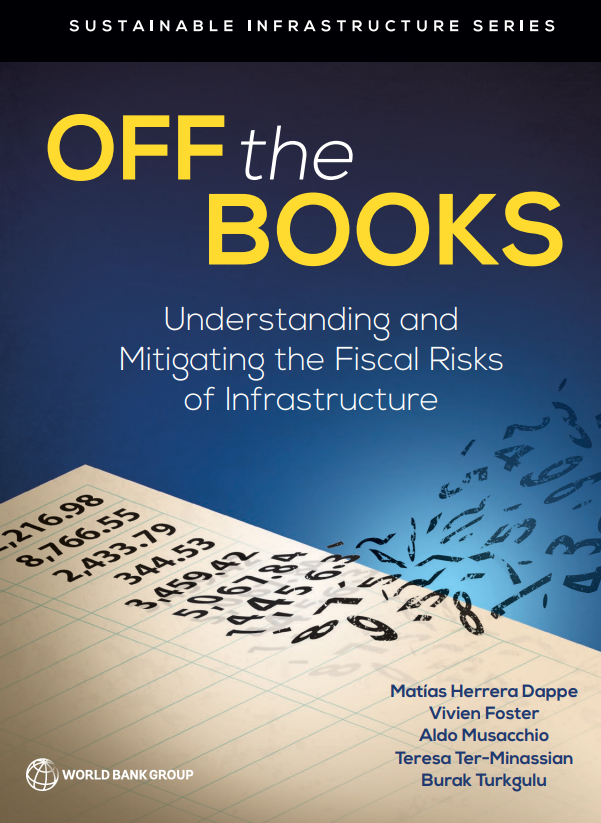Off the Books
Understanding and Mitigating the Fiscal Risks of Infrastructure

This book titled Off the Books: Understanding and Mitigating the Fiscal Risks of Infrastructure underscores the significant infrastructure needs faced by developing countries. However, the current state of public spending on infrastructure falls short, and there has been a decline in public investment in recent years. Elevated debt levels and tightening fiscal and monetary conditions further constrain funds available for infrastructure projects, emphasising the critical need to enhance the efficiency of infrastructure spending. Whether governments opt for direct public provision, state-owned enterprises (SOEs), or public-private partnerships (PPPs) to deliver infrastructure, the book reveals a high risk of fiscal surprises, both in favourable and challenging economic climates.
Highlighting the pervasive nature of fiscal risks in electricity and transport infrastructure, the book quantifies these risks and identifies root causes across various low- and middle-income countries. By drawing on new and comprehensive sources of evidence, the analysis emphasises the substantial fiscal consequences when infrastructure service delivery ends up costing more than anticipated, diminishing the fiscal space for essential spending. The book makes a distinctive contribution by enabling policymakers to assess the scale and variations of different types of risks across different contexts. It proposes a reform agenda to mitigate fiscal risks associated with infrastructure, emphasising the importance of building government capacity, adopting integrated public investment management and fiscal risk management, enhancing fiscal and corporate governance of SOEs, and ensuring robust PPP preparation, procurement, and contract management. This comprehensive understanding of fiscal risks is instrumental for policymakers, practitioners, and academics with a vested interest in infrastructure and fiscal policy, providing valuable insights for targeted reforms to maximise their impact.
Abstract based on source.


Comments